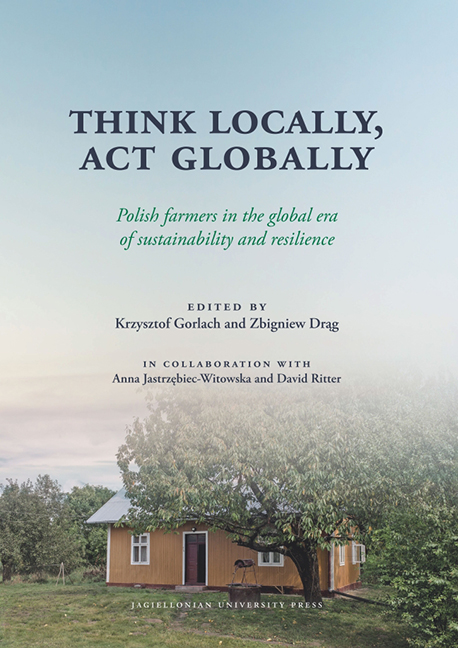Book contents
- Frontmatter
- Contents
- Family Farming: A foreword
- An Introductory Letter from the First Editor: Where the horses, cows, and even cats had their own names
- Part One Theoretical and Methodological Considerations
- Part Two Changes in the Post-Communist Transformation
- Part Three Diversification of Farmers’ Strategies
- Part Four Some Independent Studies
- Conclusion: Some Final Remarks from the First Editor
- Afterword: Renewing a Sociology of Agriculture
- Biograms
Chapter Fourteen - The Impact of Mechanization and Digitalization of Agriculture on the Farm Development in Poland
Published online by Cambridge University Press: 16 July 2022
- Frontmatter
- Contents
- Family Farming: A foreword
- An Introductory Letter from the First Editor: Where the horses, cows, and even cats had their own names
- Part One Theoretical and Methodological Considerations
- Part Two Changes in the Post-Communist Transformation
- Part Three Diversification of Farmers’ Strategies
- Part Four Some Independent Studies
- Conclusion: Some Final Remarks from the First Editor
- Afterword: Renewing a Sociology of Agriculture
- Biograms
Summary
Introduction
The notion of ongoing social change involving the progressing digitalization of social life is a starting point for the reflection on the use of new technologies, including information and communication technologies, as well as mechanization and digitalization on farms and their impact on agricultural development. Digitalization of agriculture can be perceived as the next process of radical change of a qualitative and quantitative character in agriculture that comes after agricultural mechanization, which is understood as the equipping of farms with engine-run machines. Digitalization is understood not only as the transition from the analogue to digital format of recording information, but also as changes of consciousness among the users of technology and equipping farms with technologies that use microprocessors and the Internet. This is another stage of agricultural development, where new opportunities for solving various problems related to production and distribution of agricultural products on both a local and global scale may be seen.
At the root of the assumption about the growing importance of the digitalization of social life lies a thesis about the increasing tendency to use new technologies in various dimensions of social life. Promulgation of the Internet was a decisive phenomenon for this. In 1991, the Internet became available for individual users and this started the Internet revolution that encompassed the entire world. New applications, social networks and portals, programs, Internet forums and other forms of communications involving the Internet emerged one by one and became commonly used tools of social mobilization. Another important moment deepening the described changes was the introduction of mobile technologies. In 2014, the “mobile revolution” became a fact as the number of mobile Internet users exceeded the number of those who used stationary computers connected to the net (Pieriegud, 2016, p. 17). As is well-known, the mobile technologies facilitate access to almost unlimited information resources and allow for fast communication free of physical barriers. Mobile technologies have had a huge effect on everyday life, including the emergence of the so-called “Internet of things” and wearable devices.
The digital and mobile revolution has also spread over the domain of the economy.
- Type
- Chapter
- Information
- Think Locally, Act GloballyPolish farmers in the global era of sustainability and resilience, pp. 591 - 640Publisher: Jagiellonian University PressPrint publication year: 2021

